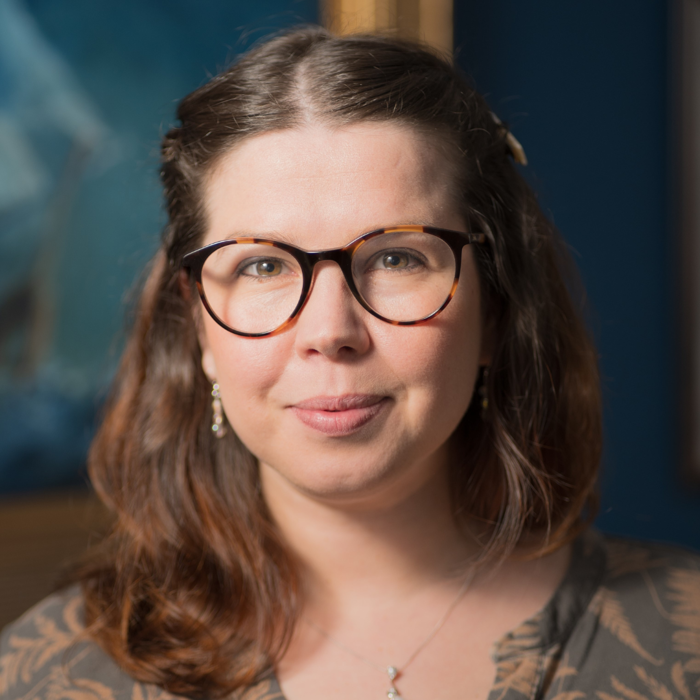Introduction to Vocal Psychotherapy: Songs of the Self
Thursday 5th September 2024, 5:00 PM - 7:00 PM (London Time)
After more than 40 years working as a music psychotherapist in private practice with adolescents and adults, Dr. Diane Austin’s clinical practice and research concluded that the voice is the primary instrument, and that singing is one of the most effective ways to build a connection to one’s innermost self and to others. This presentation draws on the methods and techniques of Vocal Psychotherapy, a new in-Depth model of music psychotherapy developed by Dr. Austin, that incorporates breath work, natural sounds, vocal improvisation, and songs and dialogue within a client and therapist relationship to facilitate intrapsychic and interpersonal change and growth.
Through audio case examples from Dr. Austin’s work in private practice with adults, the presenter will illustrate how singing and vocal improvisation can facilitate the therapeutic process and deepen the connection to self and others. Vocal Holding Techniques and Free Associative Singing will also be discussed. Case examples will be used to illustrate how these methods can be used to help clients access unconscious feelings, sensations, memories and associations so they can be processed and integrated into a more complete sense of self.
🏷️ Price £30 (UK VAT inclusive)
🎥 Recording automatically sent to all who book (even if you cannot attend live)
▶️ Rewatch as many times as you like
📜 Certificate of attendance available
Dr. Diane Austin
Dr. Diane Austin, LCAT is the Director of the Music Psychotherapy Center in NYC, NY, where she has maintained a private practice in music and vocal psychotherapy as well as analytically oriented psychotherapy for more than 40 years.

Attend this course for as little as £22 as part of the Voice Professional Training CPD Award Scheme.
Learn MoreSorry, this is an archived short course...
We have plenty of upcoming short courses coming soon. See details of some of them below or look at the full list of short courses.

Monday 7th July 2025
2:00 PM - 4:00 PM
Tuesday 8th July 2025
2:00 PM - 4:00 PM
Wednesday 9th July 2025
2:00 PM - 4:00 PM
Friday 11th July 2025
2:00 PM - 4:00 PM
Monday 14th July 2025
2:00 PM - 4:00 PM
Tuesday 15th July 2025
2:00 PM - 4:00 PM
Wednesday 16th July 2025
2:00 PM - 4:00 PM
Friday 18th July 2025
2:00 PM - 4:00 PM
(London Time)
Introduction to statistics and working with quantitative data for Voice Professionals: 8-Session Online Bootcamp

Dr David Cane
This certificated statistics course is ideal for individuals interested in laying a solid foundation in quantitative research methods. By focusing on essential statistical principles, you will be equipped with the tools to understand and apply quantitative research techniques effectively. Statistics is a crucial component of quantitative research; mastering it will enable you to grasp quantitative methods more confidently and precisely.


Tuesday 15th July 2025
5:00 PM - 7:00 PM
(London Time)
Exploring the roots of the tongue: Ideas for performance

Walt Fritz
As a relative outsider looking into the voice and performance world, I witness the bell curve of thoughts and actions on how the tongue contributes to voice problems and how best to tame that tension. Traditional ways of taming tongue tension seem adequate (or would seem so, based on feedback), so what is different and new? In this short course for the Voice Study Centre, Walt Fritz will introduce the learner to variations on self-applied tongue stretches and exercises.


Wednesday 16th July 2025
2:00 PM - 4:00 PM
(London Time)
Emotion and Performing Accents and Dialects: why does Emotion Get in the Way?

Louisa Morgan
At points of heightened emotion, it is common for actors working in an accent to default to their natural speech. How do we help performers to avoid this issue and provide them and their directors with the confidence they need regardless of the emotional demands of the piece? What can we learn from research in vocal expression of emotion to help actors to embody the emotion and keep control of their voice and accent? Our very own Louisa Morgan will guide participants through the latest research and offer practical suggestions for working with performers needing to navigate this challenge.
